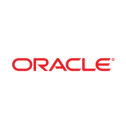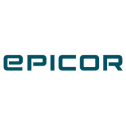CPQ Software for Small Businesses
What is CPQ for Small Businesses?
CPQ (configure, price, quote) for small businesses is a specialized sales tool designed to help small-scale enterprises efficiently manage the quote-to-cash process. Small business CPQ is specifically tailored to address the unique needs and challenges small businesses face with quoting and product configuration, which are distinct from those of larger corporations.
CPQ for small businesses is designed for:
- Simplicity and ease of use, considering smaller companies usually don’t have specialized IT staff
- Customization and scalability so the tool can be adjusted as the business grows and evolves
- Affordability, with pricing structures that are conducive to smaller budgets
- Seamless integration with CRM, invoicing, small business accounting, and ecommerce
- Minimal complexity, focusing on core functionalities that directly meet their specific needs
The core function of CPQ — helping businesses configure products, price them accurately, and generate quotes quickly — is particularly valuable for small businesses, where the sales process needs to be as efficient as possible to save time and resources.
While some CPQ solutions include a wide range of advanced tools for quoting complex products, intricate IT infrastructure, and specialized compliance features, small business CPQ focuses on the core functionalities essential for businesses with fewer customers, product lines, and team members.
CPQ Solutions for Small Businesses
DealHub CPQ Overview
Salesforce CPQ Overview
HubSpot CPQ Overview
Experlogix CPQ Overview
PandaDoc CPQ Overview
Oracle CPQ Overview
Epicor CPQ Overview
Why Small Businesses Struggle with Sales Quoting
According to the Chamber of Commerce, we can define a “small business” by a combination of two criteria:
- Revenue — Small businesses earn between $1 million and $40+ million in sales revenue each year.
- Headcount — They generally have between 100 and 500+ employees.
This comprises 99.9% of all businesses. And they all share the same challenges: cash flow, manual processes, and disconnected tools and data.
Limited Sales Resources
One of the biggest challenges for small businesses is a lack of resources. Really, this is an across-the-board issue, but it especially impacts the quoting process.
A small sales enablement budget means your sales team won’t have the tools to offer the best customer experience. This, plus a limited number of team members, means you can only work a few deals at a time.
Because of the limited access to resources, small businesses normally find it harder to qualify leads, close deals, and accurately quote customers for their products and services.
Manual Quoting Processes
With limited resources, most businesses resort to manual processes at first. It seems “just fine” to use Excel or Google Sheets equations when determining a price for a new customer if (a) you don’t have the budget for software and (b) your product line is small enough to look back and forth to configure it. And pasting it into a templated Google Doc quote doesn’t seem too bad.
But it isn’t scalable, and it’s a subpar customer experience. The fact of the matter is, it creates significant risk for quoting errors. Plus, sending sensitive documents for signature over email instead of an e-signature platform means there’s a potential for miscommunication, delays, or and security breaches.
Errors and security threats translate into lost revenue, lower customer satisfaction, and perceived untrustworthiness. 70% of customers would pay for a more convenient experience. So this is a huge reason small businesses have trouble competing with (and differentiating against) large, streamlined enterprises.
Disconnected Tools and Data
The software small businesses do have normally isn’t integrated with each other. This is especially the case if you’re only using spreadsheets and Google Docs to quote.
Let’s say, for example, you’re quoting a customer whose information is in your CRM. To access that information and plug it into the quote, you need to copy and paste it into Google Sheets or some other external tool.
And when the customer accepts the quote — then what? You need to go back into your CRM and manually update their record.
This creates bottlenecks and data discrepancies, which leads to inaccuracies and slower sales cycles. It also means your team won’t have accurate insights into sales velocity, average deal size per customer segment, and other critical information you can use to optimize your sales motion.
How CPQ Delivers Big Impact for Small Businesses
Increases Sales Efficiency
With CPQ, sales cycles are cut down by 28% (on average). There are several reasons for this:
- It streamlines the quote process by automating data entry, guiding sellers through product configurations, and calculating prices.
- It uses product rules to ensure accurate pricing and configurations for every potential customer who enters the sales pipeline.
- With accurate pricing, quotes get signed, turned into contracts, and executed on much faster — no more back-and-forth email communications, revisions, or delays in fulfillment.
- E-signature functionality built into CPQ’s contracting process ensures secure and streamlined document delivery and fast, frictionless closing procedures.
- Integrating CPQ with your CRM software means you’ll always have full pipeline visibility, can create additional automations, and will have the best sales data.
With spreadsheet-based quoting, there’s no way to track the progress of a deal, or monitor any given customer’s quote status. Manual processes also require small businesses to go back and forth between pricing documents, check product data themselves, and handle clerical work.
Accelerates Sales Growth
According to data compiled by Axonom, companies using CPQ report 105% larger average deal sizes and 17% higher lead conversion rates. On average, you can expect over 25% more of your sales reps to hit their quotas when you implement CPQ.
This all comes back to sales efficiency. Streamlining pricing processes and automating the quoting process means sellers can work with more deals at once without sacrificing quality or customer experience. Additionally, CPQ’s guided selling feature recommends upsells/cross-sells and helps them configure bundles, which contribute to larger deal sizes (and happier customers).
Automates Quoting
Software automates the CPQ process in a number of different ways.
- Product rules ensure accurate pricing and product configurations at all times.
- CPQ-CRM integration auto-populates sales documents with customer data, leaves timestamped notes, and updates their status in the pipeline.
- Templates and auto-fill features turn each quote into a contract, purchase order, or bill of materials (BOM) with zero human input.
- E-signature allows customers to securely sign off on quotes and contracts on the cloud.
- Pricing engines ensure maximum profitability for each deal, and that all quotes are in line with your company’s business goals.
If you can’t provide an accurate quote that’s also feasible for your business to every customer, you’ll never be able to run a profitable operation. And, for small businesses, that can be the difference between staying afloat and going under.
Customizable Quote Templates
One of the best aspects of CPQ systems is that modern tools are designed with intuitive, user-friendly interfaces. With a dynamic, drag-and-drop quote builder, you can create professional-looking quotes in just a few minutes.
When it comes to negotiation and redlining, CPQ’s collaborative selling functionalities help your sales team, deal desk, and decision-makers come to terms and conditions everyone is happy with. The ones they aren’t happy with, they can remove right in the same platform.
In addition to streamlining the actual document generation process, this makes it significantly easier to onboard new sales reps. With today’s CPQ software, just about anyone can pick it up and start using it almost instantly.
Shortens the Sales Cycle
CPQ automates the quote-to-cash process, which is a huge component of your sales cycle. You can generate quotes and proposals quickly without manual errors, which means you get paid faster.
This, in turn, cuts down on wasted time (and expense) in fulfillment while also increasing customer satisfaction rates.
As mentioned above, companies that successfully implement a modern CPQ tool reduce their sales cycle time by approximately 28%. Considering the average B2B sales cycle lasts 102 days (and enterprise sales take at least 6-12 months to close), that means you’re shaving at least an entire month off the total amount of time it takes to close each sale.
What to Look for in CPQ Software for Small Business
Focused Functionality
As a small business, you probably don’t need all the bells and whistles. You don’t have tons of SKUs, line items, or product/service bundles to keep track of. So why pay extra for something you’ll never use?
Focus on selecting a CPQ vendor that offers the core functionalities of a CPQ system.
- Product rules
- Pricing rules
- Guided selling
- Automatic document generation
- A drag-and-drop quote builder
- Collaborative sales features
- CRM, ERP, billing, and ecommerce integration
- Subscription management (for recurring revenue businesses)
You’ll get everything you need without paying for features only enterprise-level companies end up using.
Affordable Pricing
When it comes down to it, cost is often the biggest factor in a small business’s technology purchasing decision.
But don’t confuse “affordability” with “cheapness.” Cheap CPQ software will ultimately end up costing your business more in time and potential lost deals. You need a tool that is cost-effective, but also viable in the long-term for your business’s growth.
The good news is CPQ solutions are relatively affordable — especially when you consider the value they add to your sales processes. Many modern CPQ tools offer flexible pricing plans so small businesses can scale up or down as you grow or change your business.
But you don’t need to spend $150 per user per month for a CPQ solution that will work for your small business.
Ease of Implementation
Some CPQ systems are quite hard to implement because they require coding knowledge and specific technical skills to set up. CPQ implementation could take months if it requires you to transfer tons of data from CRM and ERP, configure product and pricing rules, and train sales reps on a complex system.
The good news is, as a small business, you probably don’t need to go through such lengths. Depending on the size of your business (say, 100 employees and $5 million in annual revenue vs. 350 employees and $40 million in annual revenue), CPQ implementation should only take between a few days and a few weeks.
When looking for a software vendor, have one of your technical decision-makers dive into the full implementation and maintenance process. If it’s too taxing, look for a solution that isn’t.
Low-Code Solution
The easiest way to find software that’s conducive to small business workflows is to find a low-code solution. These are the ones that will be easiest to onboard your team, configure for your business’s unique needs, and train for long-term success.
A low-code solution will enable you to:
- Use drag-and-drop tools with customizable templates
- Use your own product data and pricing rules without coding knowledge
- Customize basic elements of the user interface to work best for your team
- Integrate your systems and data in a few clicks
- Maintain the platform with almost no technical overhead
When you can do all this, you’ll be able to start using CPQ software in a matter of days as opposed to weeks or months.
Note: “Small” businesses are still quite large and have some complexity that requires a bit of coding and customization. For very small “micro” businesses (<$1 million in revenue, 20 or fewer employees), a simple no-code quoting tool might suffice.
Fast Integration with Other Business Tools
The second easiest way to ensure easy implementation is to choose a vendor that integrates directly with your CRM (customer relationship management) system, ERP (enterprise resource planning) system, small business accounting software, billing/invoicing software, and ecommerce platforms.
Some tools can “integrate with any CRM.” If they can, it’s normally through extensive coding and API configurations that require a developer to set up. In your selection process, narrow down your list of potential vendors to only those who can integrate natively or readily with your current tech stack.
Excellent Support
For when you do need help, you want to make sure your CPQ vendor is responsive and helpful. Some things to consider:
- Do they have a dedicated support line?
- Do they offer around-the-clock assistance?
- Are their support reps knowledgeable about their software, sales processes, and the implementation process?
- How long do most issues take to resolve?
These are all questions you should ask during demos. You should also search for reviews and CPQ comparisons to see how each system compares against the others.
FAQs
The per-user costs of CPQ vary wildly depending on the type of platform you’re using, the features you need from it, and the vendor you select. On the low end, you can expect to pay around $30-$50 per user per month. On the high end, you could end up paying $250+ for an advanced system.
Configure, price, quote is the first part of the quote-to-cash process, where a seller configures the right products, services, and pricing, then prepares a sales quote for the customer. Contracting, negotiation, approval, signature, and payment are the following steps in the quote-to-cash process.

Andrew is a professional copywriter with expertise in creating content focused on business-to-business (B2B) software. He conducts research and produces articles that provide valuable insights and information to his readers.







